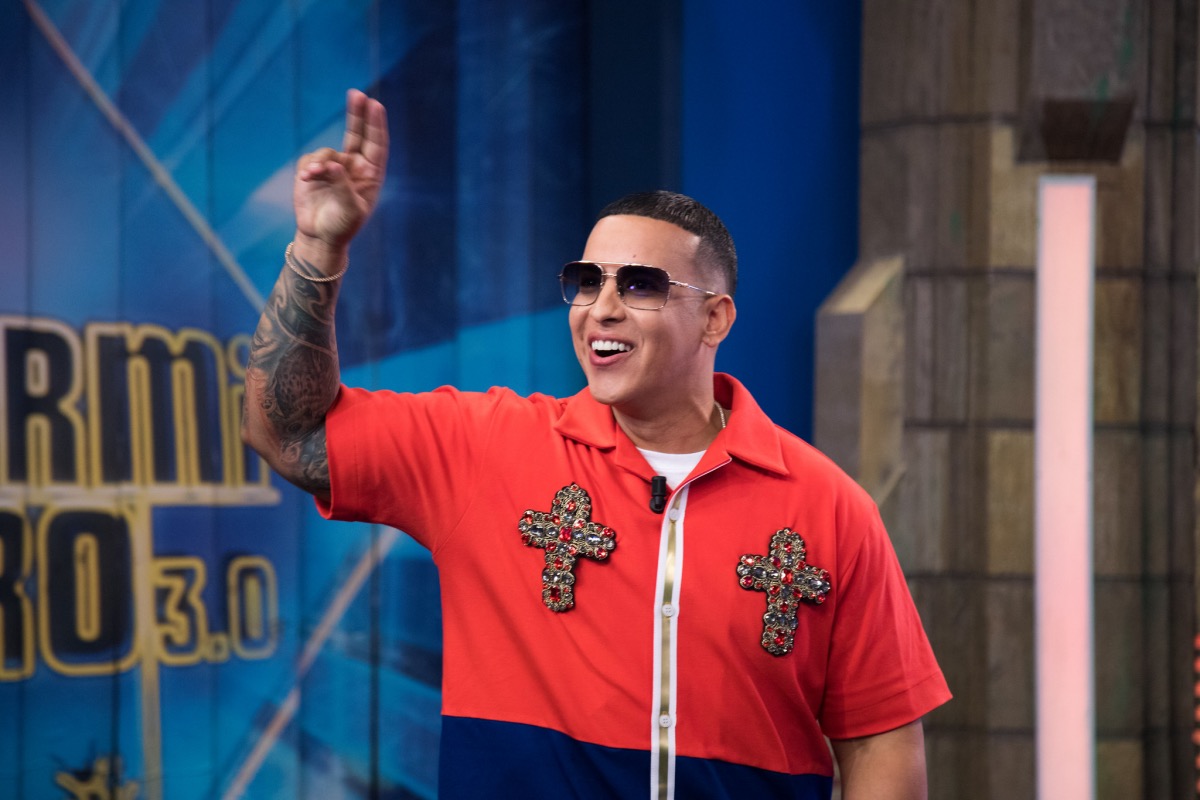

Reggaeton superstar Daddy Yankee, who recently announced his retirement from music (ElHormiguero/CC BY-NC 2.0)
“Psicópata a la vista, poder imperialista, El Yankee, el verdadero terrorista”
— “Tú No Metes Cabra (Remix)”, 2017
“Mujeres, peguen un grito mas duro que el Grito de Lares”
— “Seguroski”, 2003
Many reggaetón fans were left in shock when Daddy Yankee announced that he was ending his three-decade-long career in a video posted on March 20.
“This career has been a marathon, but I finally see the goal,” Daddy Yankee, whose real name is Ramón Luis Ayala Rodríguez, said somberly in the video.
Ayala then went on to thank his fans for all the support over the years, stating that, without them, it wouldn’t have been possible to elevate reggaetón to the point of popularity it enjoys today.
The video went beyond talk of album sales or hits and touched on the positive impact that reggaetón has had on poor and working-class communities throughout Latin America and the Latino community in the United States.
“I always worked hard to not fail you all, to not look for problems, with a lot of discipline, to inspire all the chamaquitos to be leaders. So they can dream that they grow without thinking about limits, working for their families and themselves,” the “Gasolina” singer said with a giant Puerto Rican flag behind him. “In the barrios where we grew up, most of us wanted to be drug dealers. But now when I go down to the barrios and caseríos most people want to be singers. For me, that’s worth a lot.”
Daddy Yankee accompanied the announcement with the release of his final album, LEGENDADDY, four days later. The album has a lot of the same energy that propelled the iconic 2004 album Barrio Fino to the top of the charts, mixing various styles of music without losing its flow. From the ’80s-inspired beats of “Agua” to the trappy “X Última Vez” to dembow with “Bombón,” the album tries to close out with something that Daddy Yankee’s fans can connect with.
Daddy Yankee – Rumbatón (Official Video) https://t.co/HGDr1JVyDD via @YouTube
— Daddy Yankee ? (@daddy_yankee) March 27, 2022
When it comes to collaborations, though, the album leaves out many of the artists that accompanied Daddy Yankee in the golden age of reggaetón, such as Wisin, Yandel, Don Omar, and Nicky Jam. It instead focuses on connecting with newer talent like Bad Bunny, Becky G, and Rauw Alejandro. These collaborations give the album a more contemporary sound, placing it closer to the new wave reggaeton than the classic songs like “Gasolina” and “Lo Que Pasó, Pasó.”
LEGENDADDY is an interesting way for Ayala to close out his career, and time will tell if songs like “Campeón” and “Zona del Perreo” have the long-lasting impact of his earlier work.
In retirement, Daddy Yankee will be remembered for his role in bringing the tra tra of reggaetón from a small Caribbean island to playlists in every corner of the globe. But he also embodies many of the contradictions that have formed Puerto Rican identity on the island and in the diaspora.
Ayala’s early work channeled much of the frustration felt by youth in the caseríos and barrios of Puerto Rico, and more broadly Latin America, in the wake of neoliberalism’s takeover of the region in the 1990s and 2000s. Yet despite a passing reference to the 19th-century Grito de Lares uprising in one of his early songs, “Seguroski,” Daddy Yankee’s music has been void of the stark criticisms of the status quo that contemporaries like Residente, Ivy Queen, and Tego Calderón have made a focal point of their work.
Instead, Daddy Yankee embraced the corporate turn of the genre that followed the massive success of his hit “Gasolina,” a song that made Barrio Fino the first reggaetón album to become a No. 1 Billboard hit. Daddy Yankee’s commercial success meant the genre would gain more acceptance and popularity in the Latino diaspora in the United States, making Latinos more visible in the mainstream culture.
One of John McCain’s bravest moments IMO @daddy_yankee pic.twitter.com/arXhrjs301
— DJClammyHands (@DJClammyHands) August 26, 2018
A few years after the success of “Gasolina,” Daddy Yankee would further his corporate turn by endorsing right-wing Republican presidential candidate John McCain. Despite massive opposition from others in the Puerto Rican community, and even a challenge to debate from Fat Joe, Ayala stood by McCain, telling MTV that he supported McCain because he thought that the Arizona senator actually cared about Puerto Rican issues.
El Cangri pidiendo la renuncia de Ricky Rosello #PremiosJuventud @daddy_yankee #RickyRenuciaYa
??? pic.twitter.com/D3ZjIfcmYS— reggaetonconlagata.eth (@ReggaetonXGata) July 19, 2019
Following the backlash from his McCain endorsement, Daddy Yankee has mostly steered clear of politics. But like many Puerto Ricans on the island and the diaspora, he broke his silence to call for Gov. Ricky Roselló’s resignation during 2019’s “Verano Boricua” protests. In a speech at the Premios Juventud that July, Ayala called out the rampant corruption that has defined Puerto Rican politics, the dysfunction of a defunded education system, and even said the Puerto Rican “nation” needs new leaders.
Whether Daddy Yankee intended to or not, he’s become a timeless symbol of that nation, much like Roberto Clemente, Héctor Lavoe, and Daniel Santos. While it still remains to be seen if LEGENDADDY will cement his legacy as a symbol of cultural nationalism, it’s undeniable that the world will forever associate Daddy Yankee with la bandera monoestrellada that’s ubiquitous throughout the islands, across the diaspora, and in reggaetón clubs worldwide.
***
Cruz Bonlarron Martínez is a Diasporican writer and researcher. He writes on politics, human rights, and culture in Latin America and the Latin American diaspora. Twitter: @cruzbonmar



[…] https://www.latinorebels.com/2022/04/05/legendaddy/ […]